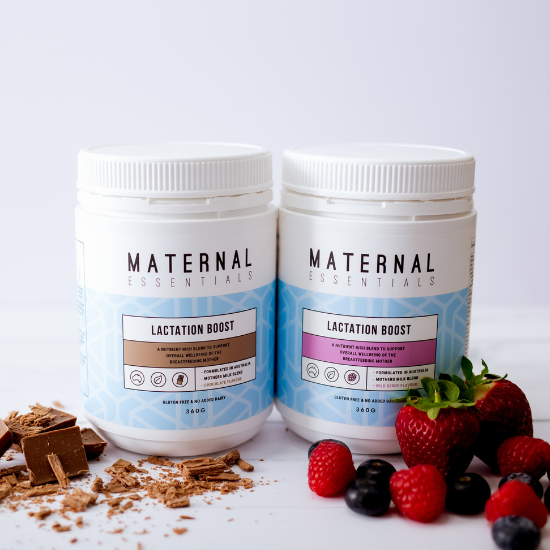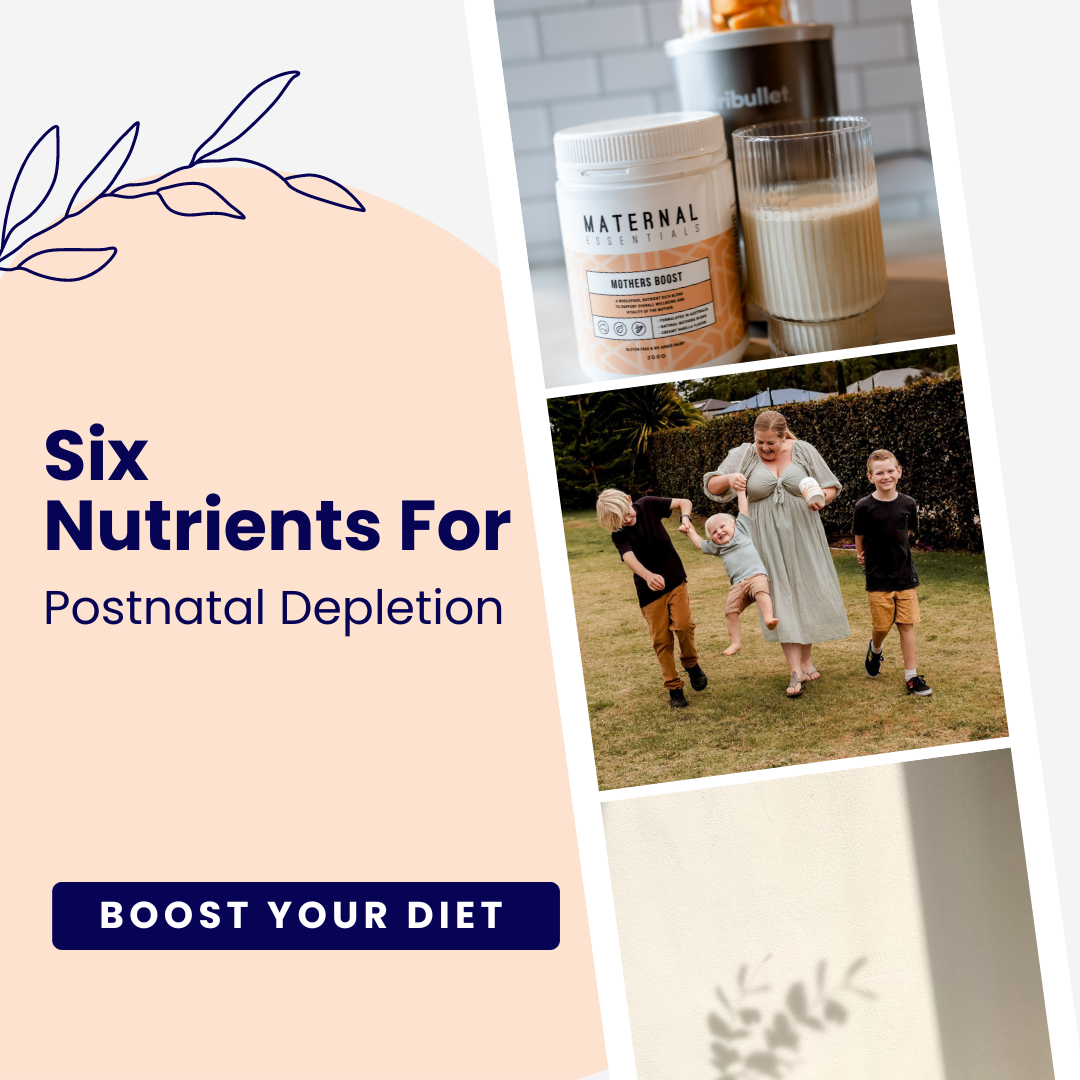High stress is common among mothers, leading to high levels of fatigue, exhaustion and eventually postnatal depletion.
As a mother, you are constantly on 24/7. This can be incredibly draining, particularly if you are not replenishing your body. Living off caffeine and when it comes to managing stress, cortisol is a hormone that plays a significant role in the body's response. High levels of cortisol can lead to various health issues, including weight gain, high blood pressure, and impaired immune function. Fortunately, there are certain nutrients that are readily available in food that can help reduce cortisol levels naturally.
These are the SIX BEST NUTRIENTS to combat postnatal depletion:
Vitamin C
What are the benefits of Vitamin C for postnatal depletion?
Vitamin C is a powerful antioxidant works to reduce inflammation, and improve energy levels by supporting your adrenal glands in regulating your cortisol levels. The antioxidant activity of vitamin C helps protect the brain from inflammation which can lead to brain fog, poor memory and low mood. Vitamin C also plays a crucial role in collagen production, which is essential for tissue repair and wound healing - something that new mothers may need after giving birth.
What are the best sources of Vitamin C?
Capsicum, Strawberry, Berries, Pomegranate, Orange, Leafy greens, Rosehip tea, Camu Camu powder, Mothers Boost Postnatal Protein (Contains 80mg of Vitamin C, 200% of the RDI)

Vitamin B6:
What are the benefits of Vitamin B6 for postnatal depletion?
Vitamin B6 is essential for production of neurotransmitters like serotonin and dopamine, which play a crucial role in mood regulation. After childbirth, many mums experience fluctuations in hormone levels, leading to mood changes. It is also needed for energy metabolism, helping your body convert food into energy, much needed in the postnatal period! By including foods rich in Vitamin B6, you will support both your mood and energy.
What are the best sources of Vitamin B6?
Pork, Turkey, Beef liver, Wheatgerm, Oats, Banana, Mothers Boost Postnatal Protein (Contains 3.2mg of Vitamin B6, 200% of the RDI)

Zinc
What are the benefits of Zinc for postnatal depletion?
Zinc helps to improve energy levels, mood, and overall well-being. Zinc is needed to make your happy hormone- serotonin and the calming neurotransmitter- GABA. Zinc deficiency during the postnatal period increases postnatal anxiety, so it is important to include sources in your diet regularly. It is also essential for immune function, as you may be more susceptible to illness due to lack of sleep and increased stress during the postnatal period.
What are the best sources of Zinc?
Oysters, Beef liver, Red meats, Eggs, Pumpkin seeds, Sesame seeds, Hemp seeds, Mothers Boost Postnatal Protein (Contains 11mg of Zinc, 90% of the RDI)

Omega-3:
What are the benefits of omega-3 for postnatal depletion?
Omega-3 fatty acids, particularly DHA, are crucial for brain function. During the postnatal period, new mothers may experience cognitive changes (aka. mum brain) and mood fluctuations. Multiple pregnancies will also deplete your levels of DHA, increasing risk of mood changes including PND, as omega-3 is required to help make serotonin, your happy hormone. Including sources of omega-3 in your diet is also important if you are breastfeeding, as the level of DHA present in your breastmilk to support your little ones brain development is dependent on your dietary intake.
What are the best sources of Omega-3?
Sardines, Salmon, Trout, Prawns, Mussels, Nuts, Seeds, Avocado

Magnesium:
What are the benefits of Magnesium for postnatal depletion?
Magnesium is an essential mineral that plays a crucial role in over 300 enzymatic reactions in the body, involved in energy production, muscle function, and nerve health. Magnesium improves sleep quality, reduces stress and anxiety, and enhances mood – all of which can be particularly beneficial for new mums struggling with postnatal depletion.
What are the best sources of Magnesium?
Dark leafy greens, Dark Chocolate, Oats, Nut Butter, Mothers Boost Postnatal Protein , (Contains 270mg of Magnesium, 85% of the RDI)
What are the benefits of L-theanine for postnatal depletion?
L-theanine is an amino acid found in tea leaves, particularly in green tea. It is known for its calming and relaxing effects on the body and mind. Research suggests that L-theanine supplementation can help to improve sleep quality, reduce anxiety and enhance cognitive function in postnatal mums. There is limited research on safety during breastfeeding (as no studies have been done), so always check with your healthcare provider before taking a specific l-theanine supplement. Otherwise, you can safely consume food based sources of l-theanine including green tea and matcha.
What are the best sources of L-theanine?
Matcha, Green tea, White tea, Black tea, Mothers Boost Postnatal Protein (Contains matcha, a natural source of l-theanine)





1 comment
Hello everyone,
Thank you for this enlightening article. Although today’s discussion isn’t directly related to health and wellness, the content certainly made me reflect on the importance of maintaining a balanced lifestyle in all aspects.
Speaking of maintaining balance, I’d like to share something from my personal health journey. While this article didn’t specifically touch on nerve health, I consider it a crucial element in achieving overall well-being, especially as we mature. For those interested in supporting their nerve health, I’ve had a very positive experience with ProNervium Nerve Support Supplement. It is specifically formulated to support nerve function and could be a valuable addition to anyone’s health regimen.
Thanks again for the great read and for allowing me to share a product that has significantly contributed to my quality of life.
Best wishes,
[Nate]